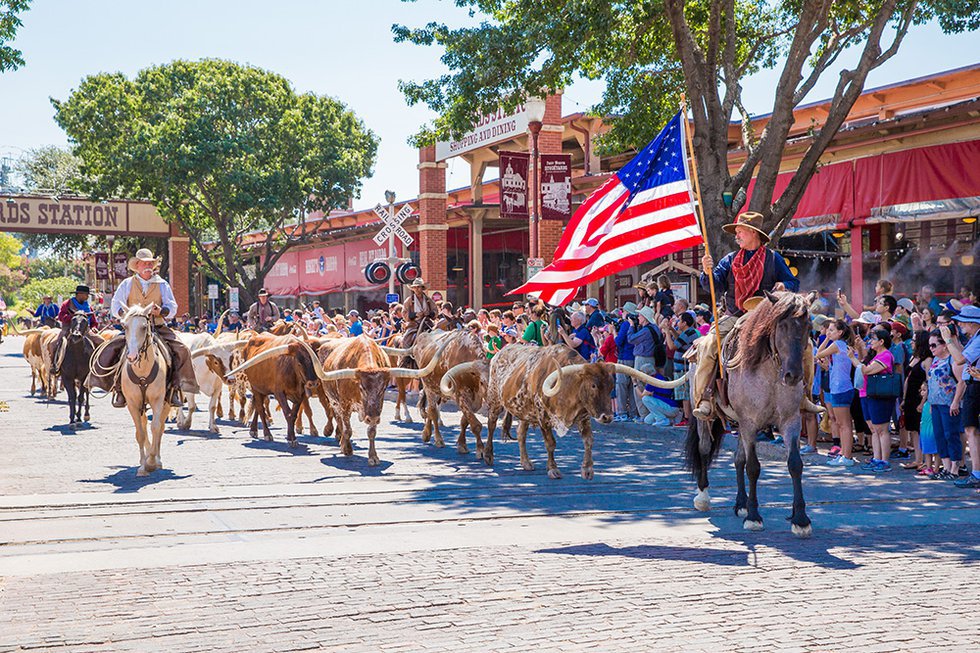In Waco last week, something invisible slipped out of the barns and into the trailers — a hitchhiking virus with a long history, a short fuse, and the power to upend the equine world almost overnight. According to veterinarians and alerts from the Texas Department of Agriculture (TDA), confirmed cases of Equine Herpesvirus Type 1 began appearing shortly after a major barrel racing event in the region.
The threat stems from the World Championship Barrel Racing Finals, held Nov. 5 through 9 in Waco. After the first cluster of cases surfaced, Commissioner Sid Miller issued a statewide advisory urging horse owners, trainers, and venue operators to isolate exposed animals immediately and begin heightened monitoring.
As word spread, at least 18 equestrian events across North Texas and beyond shut down or were postponed. In the Fort Worth Stockyards, the twice-daily cattle drive along East Exchange Avenue — the signature tourist procession — went quiet. Visit Fort Worth told the Fort Worth Star-Telegram that the drives would pause from Nov. 20 through Nov. 28 as a precaution.
Veterinary clinics in Central Texas identified the strain involved as an unusually aggressive variant capable of progressing from fever and nasal discharge to neurological symptoms with startling speed. Pregnant mares faced the additional threat of sudden abortion. Because the virus spreads easily — through contact, shared equipment, or even aerosolized droplets — the TDA urged owners to quarantine any horse that attended the Waco event for 14 days and to disinfect every piece of tack, trailer space, and gear that might carry the virus.
Cancellations soon extended far outside the state. Rodeos in Uvalde and Fort Worth’s Cowtown Rodeo shut down. The Prairie Circuit Finals went dark. Jackpot roping and breakaway events were postponed from Mississippi to Kentucky, Illinois to South Dakota, with some pushed as far out as 2026. The Women’s Professional Rodeo Association (WPRA) announced that updates for NFR Open qualifiers would follow once the full impact of the outbreak is clear.
In Fort Worth, Cowtown Coliseum faced a delicate balancing act. Ten shows were scheduled over the next two weeks, staff relied on them for paychecks, and fans expected action. With horses barred from the grounds, the arena quickly reworked its lineup. In a Facebook post by Cowtown Coliseum, the team wrote:
“We want to give everyone an update on our intentions at Cowtown Coliseum in the Fort Worth Stockyards in relation to the EHV-1 outbreak. When we met as a team today, we worked on the most important things we needto address. First and foremost, our equine athlete’s safety and health. Second, our fans and our commitment to deliver the ten shows we have scheduled over the next two weeks. Third, our commitment to our employees and contract folks that count on us for a paycheck. … As Texas experiences confirmed cases of EHV-1, we are taking proactive steps to protect our equine partners — while still delivering exciting, action-packed rodeo events. Most importantly the PRCA (Professional Rodeo Cowboys Association) Stockyards Championship Rodeo is NOT canceled for 11/21/25, we are simply pivoting to an ALL–BULL-RIDING lineup. Thanks to the support of PRCA, fans can look forward to world-class bull riding, top PRCA Bull Riders and an unforgettable performance.”
The post went on to detail a full two-week schedule of Pro Bull Riders (PBR) and PRCA bull-riding events, temporary horse restrictions, and enhanced sanitation protocols:
- All timed events and bronc riding are paused.
- No contestant horses are permitted on the grounds during this period.
- Cowtown Coliseum is undergoing strict cleaning and disinfection in all animal-handling areas.
“In true Texas fashion — we adapt, we protect our animals, and the show goes on,” the post concluded.
Across the state, horse owners remain on alert. Barns are quiet, equipment scrubbed, and horses monitored closely. The virus can incubate silently, making vigilance the only defense until investigations conclude and the outbreak runs its course.
As Miller warned — “This virus can spread fast, it can be deadly, and the earliest signs are often so subtle they’re easy to miss.”
November 20, 2025
9:33 AM
